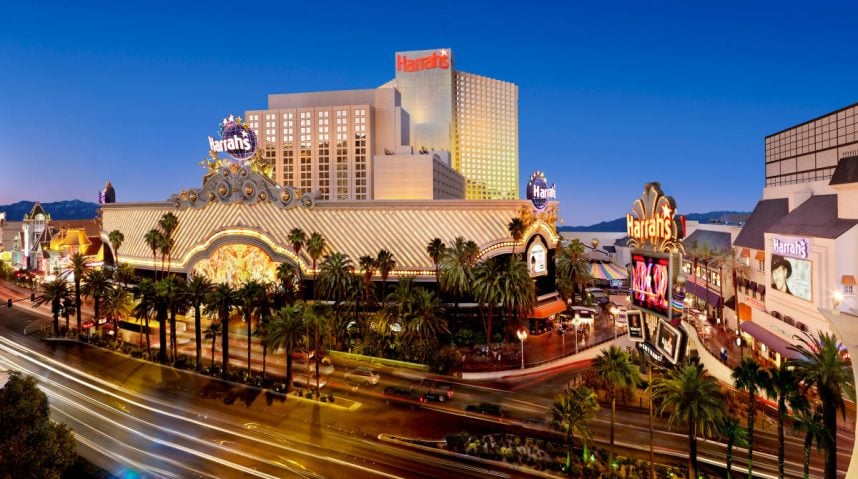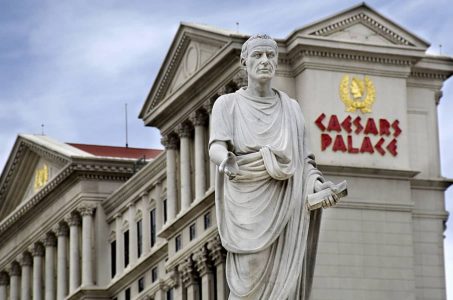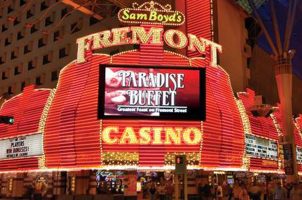Caesars Cash Flow, Debt Reduction Stories Intact, Says Analyst
Posted on: October 9, 2024, 06:21h.
Last updated on: October 10, 2024, 10:27h.
The ability to boost free cash flow while slashing debt are widely viewed as two of the primary reasons to consider shares of Caesars Entertainment (NASDAQ: CZR). One analyst says those factors are still at play.

In a new note to clients, Stifel analyst Steven Wieczynski reiterated a “buy” rating on Caesars while boosting his price target to $58 from $56, implying upside of about 35% from current levels. That after a scintillating run in which the gaming stock surged 23% over the past month. While in Las Vegas for the Global Gaming Expo (G2E), Wieczynski met with Caesars management, coming away constructive on the operator’s free cash flow (FCF) outlook.
Overall the tone of management was positive, and we believe the market continues to discount the long-term FCF potential of CZR’s brick & mortar business and ability to delever this company,” he observed.
Wieczynski also noted that is the case with most operators who have both Las Vegas Strip and regional exposure, adding that Caesars sees little evidence of consumer spending retrenchment except for sporadic, one-off examples in a small number of regional markets.
Lower Interest Rates Help Caesars
Owing to its status as one of the most indebted casino operators, Caesars has been widely highlighted as a beneficiary of lower interest rates — something the Federal Reserve delivered last month when it cut rate by 50 basis points.
Wieczynski reminded investors that for every 100 basis points rates rise or fall, Caesars could see interest expenses increase or decrease by $60 million. With Fed funds futures implying another 100 basis points of cuts by the second quarter of 2025, that implies Caesars’ interest costs could decline by $90 million or more over the next year.
Those savings are crucial because the conserved cash can be directed elsewhere, including toward debt reduction efforts, and because Caesars’ liabilities are usually the biggest area of concern among would-be investors.
“The biggest pushback we get on the CZR story remains their leverage profile, especially with most investors concerned about the health of the U.S. consumer moving forward,” added Wieczynski. “While investors like this management team and like their operating assets, it’s tough for investors to get comfortable with the leverage profile in front of a potential downturn in consumer behavior.”
Caesars Buyback Could Be a Smart Move
Last week, the Harrah’s operator told investors it repurchased $150 million worth of its stock in the third quarter under a previously existing buyback program while unveiling a new $500 million repurchase plan.
While some investors may have been miffed about the casino giant’s decision to buy back stock, Caesars did something few companies do: it repurchased its shares at discounted levels.
“CZR recently bought back some of their stock, and that caught some investors off guard. However, we believe with CZR shares yielding mid-teens on a FCF basis, the company made the decision to repurchase shares at depressed levels,” concluded Wieczynski.
Related News Articles
Wynn CEO Craig Billings Applauds Tilman Fertitta Prescient Buy of Casino Stock
VICI Properties Revered on Wall Street
Red Rock Stock Primed for Upside on Las Vegas Locals Strength
Most Popular
Sphere Threat Prompts Dolan to End Oak View Agreement
MGM Springfield Casino Evacuated Following Weekend Blaze
This Pizza & Wings Costs $653 at Allegiant VIP Box in Vegas!
Atlantic City Casinos Experience Haunting October as Gaming Win Falls 8.5%
Most Commented
-
VEGAS MYTHS RE-BUSTED: Casinos Pump in Extra Oxygen
— November 15, 2024 — 4 Comments -
VEGAS MYTHS RE-BUSTED: The Final Resting Place of Whiskey Pete
— October 25, 2024 — 3 Comments -
Chukchansi Gold Casino Hit with Protests Against Disenrollment
— October 21, 2024 — 3 Comments
















No comments yet